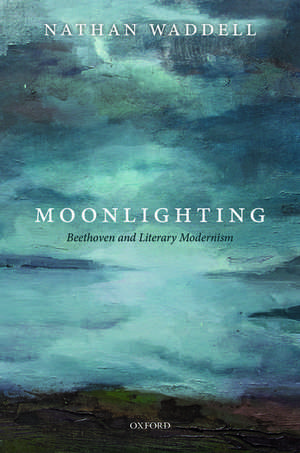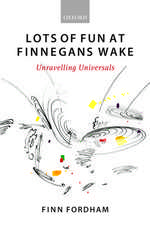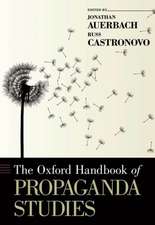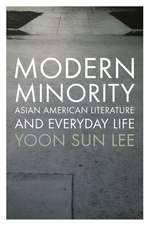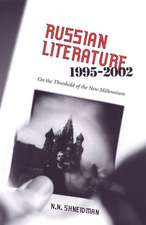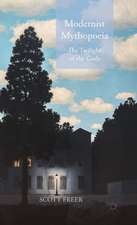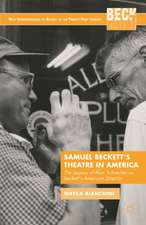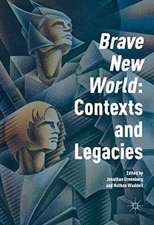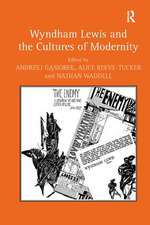Moonlighting: Beethoven and Literary Modernism
Autor Nathan Waddellen Limba Engleză Hardback – 2 iul 2019
Preț: 517.62 lei
Preț vechi: 740.47 lei
-30% Nou
Puncte Express: 776
Preț estimativ în valută:
99.05€ • 103.67$ • 82.44£
99.05€ • 103.67$ • 82.44£
Carte disponibilă
Livrare economică 26 februarie-04 martie
Preluare comenzi: 021 569.72.76
Specificații
ISBN-13: 9780198816706
ISBN-10: 0198816707
Pagini: 272
Dimensiuni: 161 x 240 x 22 mm
Greutate: 0.58 kg
Editura: OUP OXFORD
Colecția OUP Oxford
Locul publicării:Oxford, United Kingdom
ISBN-10: 0198816707
Pagini: 272
Dimensiuni: 161 x 240 x 22 mm
Greutate: 0.58 kg
Editura: OUP OXFORD
Colecția OUP Oxford
Locul publicării:Oxford, United Kingdom
Recenzii
Moonlighting is particularly enlightening in its commentary on representations of women performing Beethoven.
Moonlighting would be an excellent book for an interdisciplinary graduate seminar on music and literature. ... For music students and scholars, one challenge presented by Moonlighting might be the sheer volume of literary references and the close reading of literary texts. Ultimately, the book is highly recommended as a work of paramusicology, offering a fascinating exploration of the liminal space between Beethoven and Beethovenism via its accessible prose, authoritative analyses, and nearly seamless integration of literary and musicological sources.
Moonlighting is a revealing lesson in understanding how and why modernist authors engaged with these Beethovenian tropes...Novels, [Waddell] points out, are not just stories or representations of ideas; they are a space in which to study music and the concrete ways in which we engage with it. Waddell's framing of novelists as musicologists at the beginning of Moonlighting is therefore apt. By the end of the book, Waddell has demonstrated convincingly how authors like West, Lewis and Richardson explored responses to Beethoven - not through research, but through imaginative novels that combined musical sensitivity with literary insight.
Moonlighting is exemplary in demonstrating the value of attending closely to those passing references to musical culture that are often overlooked in accounts of literary modernism.
Moonlighting delivers an invaluable appraisal of the Beethovenian in modernist literature, and its contributions to musico-literary scholarship will continue to emerge with the benefit of time and further exploration.
What is certain is that Waddell has produced a brilliant account of the ways in which Beethoven's work was perceived, consumed and transformed by the writers of the modernist era. It is a work of tremendous erudition, full of thought-provoking ideas, conveyed with zest, discrimination and enthusiasm. Scholars of literature and music will discover something new on every page, and the general reader will marvel at the breadth and scope of this excellent book.
Moonlighting would be an excellent book for an interdisciplinary graduate seminar on music and literature. ... For music students and scholars, one challenge presented by Moonlighting might be the sheer volume of literary references and the close reading of literary texts. Ultimately, the book is highly recommended as a work of paramusicology, offering a fascinating exploration of the liminal space between Beethoven and Beethovenism via its accessible prose, authoritative analyses, and nearly seamless integration of literary and musicological sources.
Moonlighting is a revealing lesson in understanding how and why modernist authors engaged with these Beethovenian tropes...Novels, [Waddell] points out, are not just stories or representations of ideas; they are a space in which to study music and the concrete ways in which we engage with it. Waddell's framing of novelists as musicologists at the beginning of Moonlighting is therefore apt. By the end of the book, Waddell has demonstrated convincingly how authors like West, Lewis and Richardson explored responses to Beethoven - not through research, but through imaginative novels that combined musical sensitivity with literary insight.
Moonlighting is exemplary in demonstrating the value of attending closely to those passing references to musical culture that are often overlooked in accounts of literary modernism.
Moonlighting delivers an invaluable appraisal of the Beethovenian in modernist literature, and its contributions to musico-literary scholarship will continue to emerge with the benefit of time and further exploration.
What is certain is that Waddell has produced a brilliant account of the ways in which Beethoven's work was perceived, consumed and transformed by the writers of the modernist era. It is a work of tremendous erudition, full of thought-provoking ideas, conveyed with zest, discrimination and enthusiasm. Scholars of literature and music will discover something new on every page, and the general reader will marvel at the breadth and scope of this excellent book.
Notă biografică
Nathan Waddell is a Senior Lecturer in Early Twentieth-Century and Modernist Literature in the Department of English Literature at the University of Birmingham. He is the author of Modern John Buchan (2009) and Modernist Nowheres: Politics and Utopia in Early Modernist Writing, 1900-1920 (2012), and a co-editor of several volumes of scholarly essays, including: Wyndham Lewis and the Cultures of Modernity (2011); Utopianism, Modernism, and Literature in the Twentieth Century (2013); John Buchan and the Idea of Modernity (2013); Wyndham Lewis: A Critical Guide (2015); and 'Brave New World': Contexts and Legacies (2016).
